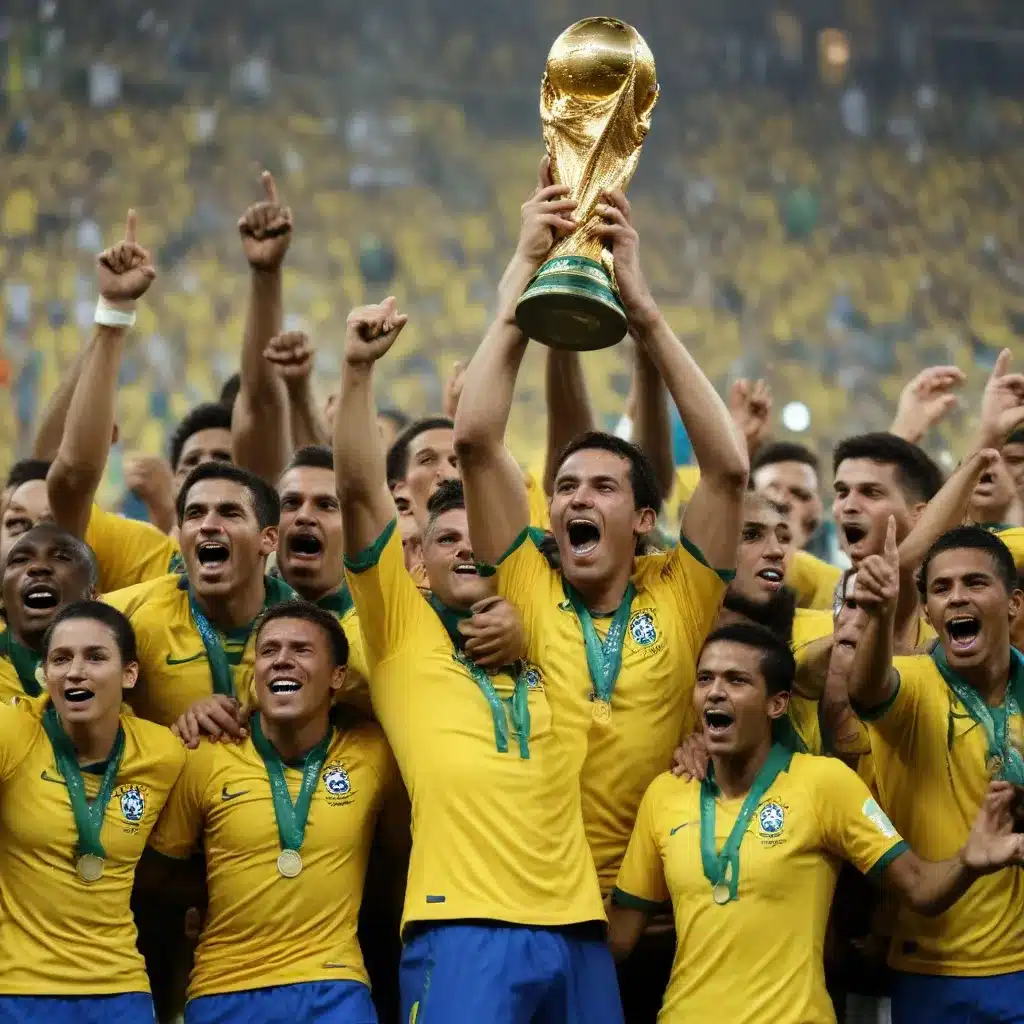
Brazil’s Football Legacy
Football holds a revered place in the hearts and minds of the Brazilian people. The nation’s passion for the beautiful game is unparalleled, woven into the fabric of its culture and identity. From the iconic Maracanã stadium in Rio de Janeiro to the bustling streets of São Paulo, the unmistakable chants and rhythmic drumbeats of Brazilian fans reverberate, echoing the country’s deep-rooted love affair with football.
The history of Brazilian football is a tapestry of triumph and tradition. The national team, known as the Seleção, has won a record five World Cup titles, captivating global audiences with their mesmerizing style of play and a conveyor belt of legendary players. From the silky skills of Pelé to the dazzling dribbles of Ronaldinho, Brazilian footballers have consistently set the standard for technical excellence and creative flair.
Domestic football in Brazil is equally vibrant, with the Campeonato Brasileiro Série A, or Brasileirão, regarded as one of the most competitive and entertaining leagues in the world. Storied clubs like Flamengo, Corinthians, São Paulo, and Internacional have amassed loyal followings, engaging in fierce rivalries that electrify the nation. The state-level championships, known as the Campeonatos Estaduais, further fuel the passion, as local teams battle for regional supremacy.
Hosting the 2014 World Cup
When FIFA awarded the 2014 World Cup to Brazil, the country was brimming with excitement and anticipation. As the spiritual home of the sport, the opportunity to host the world’s biggest football tournament was seen as a chance to showcase Brazil’s rich football heritage and cement its status as a global footballing powerhouse.
However, the road to hosting the World Cup was not without its challenges. Logistical hurdles and infrastructure concerns loomed large, as Brazil faced the daunting task of preparing the necessary stadiums, transportation networks, and accommodation facilities to welcome millions of football fans from around the world.
The government undertook an extensive program of stadium renovations and construction, investing heavily in projects such as the Arena da Amazônia in Manaus and the Arena Pantanal in Cuiabá. These state-of-the-art facilities, designed to cater to the demands of the modern game, were seen as crucial in ensuring a successful tournament.
Beyond the stadiums, significant efforts were made to improve the country’s transportation infrastructure. Airports were expanded, highways were upgraded, and public transit systems were enhanced to facilitate the smooth movement of spectators and teams.
Pressure and Expectations
As the host nation, Brazil faced immense pressure and heightened expectations from its passionate fanbase. The Seleção, led by the charismatic Neymar, were widely tipped to lift the trophy on home soil, a feat that would have cemented their legacy as one of the greatest teams in World Cup history.
The media scrutiny was relentless, with Brazilian and international outlets closely following every development, both on and off the pitch. The nation’s collective gaze was fixed on the national team, with the entire country holding its breath in anticipation of a triumphant campaign.
The fervent support of the Brazilian fans, however, was a double-edged sword. While their unwavering loyalty and vocal encouragement provided a powerful boost to the team, the immense pressure to deliver a championship triumph weighed heavily on the players’ shoulders.
Brazil’s Performance in the 2014 World Cup
As the tournament kicked off, the Brazilian team embarked on a journey filled with both exhilarating highs and devastating lows. The Seleção navigated the group stage with relative ease, securing their place in the knockout rounds with a series of convincing performances.
However, the team’s momentum was dealt a significant blow when their talisman, Neymar, suffered a serious injury in the quarterfinal match against Colombia. The loss of their star player, coupled with the suspension of captain Thiago Silva, left the team reeling and facing a daunting semifinal clash against the formidable German side.
What followed was a match that would go down in infamy, a traumatic chapter in Brazilian football history. The Seleção were ruthlessly dismantled by a rampant German team, succumbing to a humiliating 7-1 defeat on home soil. The sheer magnitude of the loss, coupled with the nation’s unbridled expectations, left the players, fans, and the entire country in a state of shock and disbelief.
Lessons Learned and the Path Forward
Despite the heartbreaking defeat, Brazil’s experience of hosting the 2014 World Cup was not without its positive takeaways. The tournament served as a catalyst for significant infrastructure improvements, with the upgraded stadiums and transportation networks continuing to benefit the country long after the final whistle had blown.
Moreover, the resilience and determination of the Brazilian people shone through, as they rallied behind their team despite the devastating setback. The passion and unwavering support of the fans, even in the face of such a humiliating loss, demonstrated the enduring love affair between the nation and the beautiful game.
As Brazil looks to the future, the lessons learned from the 2014 World Cup will undoubtedly shape the country’s approach to hosting major sporting events. The need to manage expectations, develop a robust contingency plan, and foster a positive, supportive environment for the national team has become increasingly apparent.
Today, the Brazilian football landscape continues to evolve, with the domestic league and the national team adapting to the ever-changing demands of the modern game. The country’s passion for the sport remains undiminished, and its determination to reclaim its rightful place among the global footballing elite is unwavering.
Through the highs and lows, the triumphs and heartbreaks, the story of Brazilian football is one of resilience, passion, and an unshakable belief in the power of the beautiful game to unite a nation. As the world turns its eyes to Brazil once again, the country stands ready to showcase its football prowess and reaffirm its status as a true footballing superpower.

